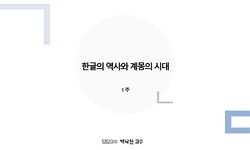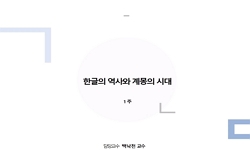초기불교 삼장텍스트는 전법의 기본근간으로, 권위적이고 원천적인 본래적 의미를 가졌다. 더불어 종교적 감성과 직관을 소유한 만큼 시대를 넘어서는 훌륭한 매체이다. 삼장텍스트의 이러...
http://chineseinput.net/에서 pinyin(병음)방식으로 중국어를 변환할 수 있습니다.
변환된 중국어를 복사하여 사용하시면 됩니다.
- 中文 을 입력하시려면 zhongwen을 입력하시고 space를누르시면됩니다.
- 北京 을 입력하시려면 beijing을 입력하시고 space를 누르시면 됩니다.

삼장(三藏, Tri-Pitaka)텍스트의 해석 양상들 -성서학과 불교경전과의 간격을 토대로 하여- = Tripitaka Texts and its Interpretations -Based on the Gap between Biblical Literature and Buddhist Scriptures-
한글로보기https://www.riss.kr/link?id=A106419143
- 저자
- 발행기관
- 학술지명
- 권호사항
-
발행연도
2019
-
작성언어
-
-
주제어
삼장 ; 三藏 ; 직관과 감성 ; 초기불교 ; 종교적 권위 ; 깨달음 ; 불교공동체 ; Tripitaka ; Emotions and Intuitions ; The Early Buddhism ; Religious Authority ; Enlightenment ; Buddhist Eommunities
-
등재정보
KCI등재
-
자료형태
학술저널
-
수록면
45-69(25쪽)
-
KCI 피인용횟수
1
- 제공처
-
0
상세조회 -
0
다운로드
부가정보
국문 초록 (Abstract)
원천적 삼장을 재정립하려는 시도는 현대학자들에 의해 가해졌다. 에띠엔 라모뜨, 오스카 본 휘뉘바, 유 코 레이, 전재성 등등의 학자들은 방대한 삼장을 그들 나름대로 해석한다. 또한 의미를 부여해서 대중과 엘리트층에게 삼장을 친밀하고 고급스럽게 재정립한다. 그리고 토인비는 삼장텍스트를 서양의 존재론 관점인 ‘욕망의 역설’로 비판 해석하여 뜨거운 논쟁을 벌였다. 서양철학의 시각에서, 삼장텍스트는 흥미진진한 모순과 역설로 대중의 인기를 얻었다. 삼장 텍스트는 고대 불교공동체를 지탱하게 하는 근원이자, 새로운 소통 마당으로 다각적인 모습을 지녔으므로, 그 자체가 현대불교공동체에게 새로운 양상들을 내놓는 결과를 가져왔다.
초기불교 삼장텍스트는 전법의 기본근간으로, 권위적이고 원천적인 본래적 의미를 가졌다. 더불어 종교적 감성과 직관을 소유한 만큼 시대를 넘어서는 훌륭한 매체이다. 삼장텍스트의 이러한 이중적이고 모순적일수 있는 성격은, 세간과 출세간을 넘나들고 있는 삼장자체의 성격이기도 하며, ‘종교적 권위’와 ‘감성과 직관’이라는 서로 다른 양상들을 함유하고 있어 독특한 위상을 가졌다. 우리 주변에 누군가가 종교적 ‘직관과 감성’을 거론한다면, 단순하게 그/그녀만의 감정 정도로 흘려버리고, 그렇게 대하는 것에 익숙해 있는 자신을 발견할 것이다. 종교 본연의 감정을 메마른 상태로 받아들여 그대로 노출시킨다. 슐라이어마허는 ‘종교적 직관과 감성’이 종교 본래의미라고 규정한다. 반면, 불교도들은 깨달음의 유무를 삼장을 통해서 확인하는 절차를 그대로 보여준다. 종교적 직관과 감성이, 텍스트인 경전과 구별되어야 한다는 서양학자들의 견해와 다르게, 불교도들은 삼장에게 무한한 가능성을 기대한다. 인쇄된 활자가 고대 전통한 비구들의 작품이라는 사실이 삼장권위를 객관적 현실로 바꾸어 놓지만, 철저하게 계획되고 공들인 문헌이라는 사실과 더불어 붓다의 직설이라는 후광으로 전법에 효과적이었다. 또한 감성과 직관을 지녔다는 점도 높이 평가해야 한다.
원천적 삼장을 재정립하려는 시도는 현대학자들에 의해 가해졌다. 에띠엔 라모뜨, 오스카 본 휘뉘바, 유 코 레이, 전재성 등등의 학자들은 방대한 삼장을 그들 나름대로 해석한다. 또한 의미를 부여해서 대중과 엘리트층에게 삼장을 친밀하고 고급스럽게 재정립한다. 그리고 토인비는 삼장텍스트를 서양의 존재론 관점인 ‘욕망의 역설’로 비판 해석하여 뜨거운 논쟁을 벌였다. 서양철학의 시각에서, 삼장텍스트는 흥미진진한 모순과 역설로 대중의 인기를 얻었다. 삼장 텍스트는 고대 불교공동체를 지탱하게 하는 근원이자, 새로운 소통 마당으로 다각적인 모습을 지녔으므로, 그 자체가 현대불교공동체에게 새로운 양상들을 내놓는 결과를 가져왔다.
다국어 초록 (Multilingual Abstract)
If someone around us refers religious 'intuitions and emotions', the person would find him or herself who is familiar with the attitude being treated such way his or her own emotions. It considers the true emotions of a religion as they are and reveals them just like they are. Schleiermacher stated that 'religious intuitions and emotions' are original meaning of religions. Meanwhile, The Tripitaka shows the procedures of verifying the enlightenment. Contrary to Western Scholars who claimed that religious intuitions should be distinguished from scriptures written in texts, Buddhists expect boundless possibilities from Tripitaka. The Fact that printed typographies are works done by bhikkus, who were fully aware of ancient times, transforms the dignity of Tripitaka into objective reality. The literature, which was a product of thorough planning and elaborative workmanship, makes the dharma-transmission effective while communicating the direct lectures of Buddha. The fact that it embraces traits of emotions and intuitions should be highly valued.
Scholars in modern times have reestablish the intrinsic Tripitaka. Academic scholars like Etinne Lamotte, Oskar von Hinuber, U Ko Lay and Jeon Jaesung tried to interpret the extensive Tripitaka with their own perspective. They also assigned significant meaning to it and tried to reestablish intimacy and exclusive state of Tripitaka in the eyes of the general public and intellectual elites. A. J. Toynbee who criticized the text of Tripitaka with an ontological perspective in Western world interpreted it as 'paradox of desires', which caused disputes.
In the perspective of Western philosophy, the text of Tripitaka became popular with public because of its interesting contradiction and paradox. This can be an alternative measure for the effective dharma-transmission. The text of Tripitaka is a fundamental origin for ancient community of Buddhism and a new form of communication, and this bring new modern Buddhist communities.
Tripitaka texts in early Buddhism as a basic fundamental foundation for dharma-transmission embrace its original and authentic meaning with dignity. Furthermore, it plays an important role as a medium which transcends time by exemplifying the properti...
Tripitaka texts in early Buddhism as a basic fundamental foundation for dharma-transmission embrace its original and authentic meaning with dignity. Furthermore, it plays an important role as a medium which transcends time by exemplifying the properties of emotions and intuitions in Buddhism. The duality and contradictory aspects of Tripitaka text imply the nature of Tripitaka itself, which encompasses the mundane and supra-mundane world. This nature makes Buddhism unique and the texts should be treated differently from religious texts in other religions. The status in Tripitaka text occupies a very distinctive trait which contains different aspects of 'religious authority' and 'emotions and intuitions'.
If someone around us refers religious 'intuitions and emotions', the person would find him or herself who is familiar with the attitude being treated such way his or her own emotions. It considers the true emotions of a religion as they are and reveals them just like they are. Schleiermacher stated that 'religious intuitions and emotions' are original meaning of religions. Meanwhile, The Tripitaka shows the procedures of verifying the enlightenment. Contrary to Western Scholars who claimed that religious intuitions should be distinguished from scriptures written in texts, Buddhists expect boundless possibilities from Tripitaka. The Fact that printed typographies are works done by bhikkus, who were fully aware of ancient times, transforms the dignity of Tripitaka into objective reality. The literature, which was a product of thorough planning and elaborative workmanship, makes the dharma-transmission effective while communicating the direct lectures of Buddha. The fact that it embraces traits of emotions and intuitions should be highly valued.
Scholars in modern times have reestablish the intrinsic Tripitaka. Academic scholars like Etinne Lamotte, Oskar von Hinuber, U Ko Lay and Jeon Jaesung tried to interpret the extensive Tripitaka with their own perspective. They also assigned significant meaning to it and tried to reestablish intimacy and exclusive state of Tripitaka in the eyes of the general public and intellectual elites. A. J. Toynbee who criticized the text of Tripitaka with an ontological perspective in Western world interpreted it as 'paradox of desires', which caused disputes.
In the perspective of Western philosophy, the text of Tripitaka became popular with public because of its interesting contradiction and paradox. This can be an alternative measure for the effective dharma-transmission. The text of Tripitaka is a fundamental origin for ancient community of Buddhism and a new form of communication, and this bring new modern Buddhist communities.
참고문헌 (Reference)
1 제임스 조지 프레이저, "황금가지, 제1권" 을유문화사 2005
2 슐라이어마허, "종교론" 한들 1997
3 에띠엔 라모뜨, "인도불교사Ⅰ" 시공사 2006
4 전재성, "빠알리語辭典" 한국불교대학출판사 1994
5 박경준, "불교사회경제사상" 동국대학교출판부 2013
6 김종인, "경전에서 고전으로: 불교 문헌의 현대와의 대화" 한국동서비교문학학회 (21) : 27-50, 2009
7 남재우, "경남발전" 경남발전연구소 2011
8 피터 버거, "異端의 時代" 문학과 지성사 1998
9 "大正新修大藏經"
10 박윤철, "『반야심경』 번역의 고찰" 한국동서비교문학학회 (20) : 111-130, 2009
1 제임스 조지 프레이저, "황금가지, 제1권" 을유문화사 2005
2 슐라이어마허, "종교론" 한들 1997
3 에띠엔 라모뜨, "인도불교사Ⅰ" 시공사 2006
4 전재성, "빠알리語辭典" 한국불교대학출판사 1994
5 박경준, "불교사회경제사상" 동국대학교출판부 2013
6 김종인, "경전에서 고전으로: 불교 문헌의 현대와의 대화" 한국동서비교문학학회 (21) : 27-50, 2009
7 남재우, "경남발전" 경남발전연구소 2011
8 피터 버거, "異端의 時代" 문학과 지성사 1998
9 "大正新修大藏經"
10 박윤철, "『반야심경』 번역의 고찰" 한국동서비교문학학회 (20) : 111-130, 2009
11 Jonh Visvader, "The Use of Paradox in Uroboric Philosophies" 28 (28): 1978
12 "Sutta-nipāta"
13 "Saṃyukta Āgama Vol.16. (T2)[『雜阿含經』卷16 (T2)]"
14 "Matthew Chapter 7"
15 "Lucas Chapter 6"
16 U Ko Lay, "Guide to Tipitaka" Selangor Buddhist Vipassanā Meditation Society 2000
17 Jayatilleke. K. N., "Aspects of Buddhist social Philosophy" Buddhist Publication society 1984
18 Frauwallner, E., "Abhidharma-Studien IV, Der Abhidharma der anderen Schulen" 15 : 103-121, 1971
19 Herman. A. L., "A Solution to the paradox of desire in Buddhism" 29 (29): 1979
20 Oskar von Hinüber, "A Handbook of Pāili Literature" Walter de Gruyter 1996
동일학술지(권/호) 다른 논문
-
- 충남대학교 인문과학연구소
- 문선
- 2019
- KCI등재
-
- 충남대학교 인문과학연구소
- 박치완
- 2019
- KCI등재
-
- 충남대학교 인문과학연구소
- 강연임
- 2019
- KCI등재
-
『주역』건곤(乾坤)의 괘서(卦序)에 관한 연구-사덕(四德)을 중심으로-
- 충남대학교 인문과학연구소
- 이현철
- 2019
- KCI등재
분석정보
인용정보 인용지수 설명보기
학술지 이력
| 연월일 | 이력구분 | 이력상세 | 등재구분 |
|---|---|---|---|
| 2026 | 평가예정 | 재인증평가 신청대상 (재인증) | |
| 2020-01-01 | 평가 | 등재학술지 유지 (재인증) |  |
| 2017-01-01 | 평가 | 등재학술지 유지 (계속평가) |  |
| 2014-01-03 | 학술지명변경 | 외국어명 : 미등록 -> THE JOURNAL OF HUMANITIES STUDIES |  |
| 2013-01-01 | 평가 | 등재학술지 유지 (등재유지) |  |
| 2010-01-01 | 평가 | 등재학술지 선정 (등재후보2차) |  |
| 2009-01-01 | 평가 | 등재후보 1차 PASS (등재후보1차) |  |
| 2008-01-01 | 평가 | 등재후보학술지 유지 (등재후보1차) |  |
| 2007-01-01 | 평가 | 등재후보학술지 유지 (등재후보1차) |  |
| 2005-01-01 | 평가 | 등재후보학술지 선정 (신규평가) |  |
학술지 인용정보
| 기준연도 | WOS-KCI 통합IF(2년) | KCIF(2년) | KCIF(3년) |
|---|---|---|---|
| 2016 | 0.44 | 0.44 | 0.4 |
| KCIF(4년) | KCIF(5년) | 중심성지수(3년) | 즉시성지수 |
| 0.38 | 0.36 | 0.658 | 0.14 |




 KISS
KISS






